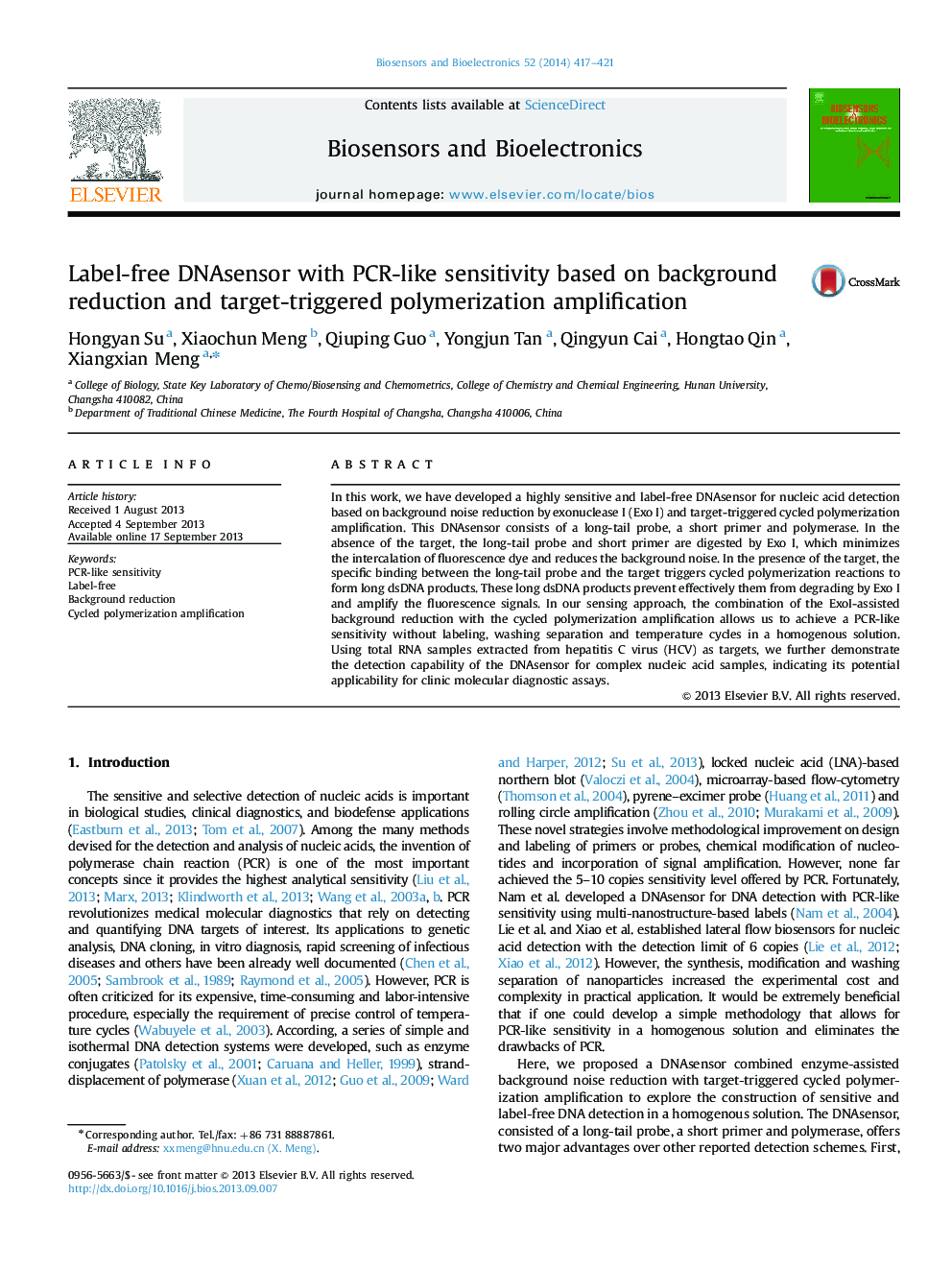| Article ID | Journal | Published Year | Pages | File Type |
|---|---|---|---|---|
| 866801 | Biosensors and Bioelectronics | 2014 | 5 Pages |
•A highly sensitive and label-free DNAsensor based on background noise reduction and long-tail probe-based cycled polymerization amplification was developed.•The combination of background noise reduction with long-tail probe-based signal amplification allows us to detect DNA at PCR-like level.•The designed long-tail probe extends significantly the length of polymerization product.•The introduction of Exo I results in the significant background reduction and enhancement the signal to noise ratio.
In this work, we have developed a highly sensitive and label-free DNAsensor for nucleic acid detection based on background noise reduction by exonuclease I (Exo I) and target-triggered cycled polymerization amplification. This DNAsensor consists of a long-tail probe, a short primer and polymerase. In the absence of the target, the long-tail probe and short primer are digested by Exo I, which minimizes the intercalation of fluorescence dye and reduces the background noise. In the presence of the target, the specific binding between the long-tail probe and the target triggers cycled polymerization reactions to form long dsDNA products. These long dsDNA products prevent effectively them from degrading by Exo I and amplify the fluorescence signals. In our sensing approach, the combination of the ExoI-assisted background reduction with the cycled polymerization amplification allows us to achieve a PCR-like sensitivity without labeling, washing separation and temperature cycles in a homogenous solution. Using total RNA samples extracted from hepatitis C virus (HCV) as targets, we further demonstrate the detection capability of the DNAsensor for complex nucleic acid samples, indicating its potential applicability for clinic molecular diagnostic assays.
